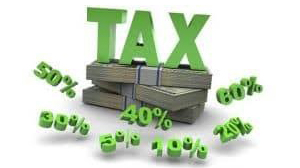
State Taxes
The California State Board of Equalization (BOE)
If you own a business in California that sells medical cannabis and cannabis-related products, you must register with the California Board of Equalization for a seller's permit and regularly file sales and use tax returns. The BOE provides a comprehensive Tax Guide to help you understand tax obligations specific to the cannabis industry. In addition BOE staff is available to meet with you at your business location to provide a personal consultation to help you correctly report and pay your sales and use taxes.
More information may be found at: www.boe.ca.gov or by calling (800) 400-7115
Federal Taxes
Internal Revenue Service
All for-profit ventures are subject to federal income taxes. Under Internal Revenue Code (IRC) Section 280E, the IRS does not allow businesses involved in “trafficking of controlled substances” to deduct ordinary and necessary business expenses, but does require the payment federal income taxes. For more information please see memo 201504011 issued by the IRS Chief Counsel on 1/23/2015.
Further federal tax information can be found by contacting the IRS at:
Internal Revenue Service
928 E. Blanco Rd.
Salinas, CA 93901
Phone: (831) 753-6895
Website: www.irs.gov/Businesses
County Cannabis Business Tax
On 11/8/2016 voters passed Measure E which extended taxation authority of up to 10% on all gross receipts to any commercial cannabis business operating in the unincorporated County. This included business involved in cultivating, dispensing, transporting, manufacturing, compounding, converting, processing, preparing, storing, packaging, or conducting wholesale and/or retail sales of cannabis and any ancillary products. All proceeds from the Cannabis Business Tax shall be placed in the County’s general fund and used for the usual current expenses of the County.
County Business Property Tax
- Business property and some personal property is taxable.
- Machinery, equipment, tools, furniture, fixtures, and leasehold improvements held or used in connection with a trade or business are taxable.
- Supplies on hand, demonstration equipment, and construction in-progress are also assessable.
- All costs before trade-in should be reported whether capitalized, expensed, or fully depreciated.
- Inventory held for sale, application software and licensed vehicles are not taxable.
Unlike real property in California, business property and taxable personal property are appraised annually at full market value. Several types of property statements are used to assist the Assessor to determine the taxable value of business and personal property.
You can download any of these forms and learn more by visiting the Santa Cruz County Assessor Office: Business and Personal Property Assessment